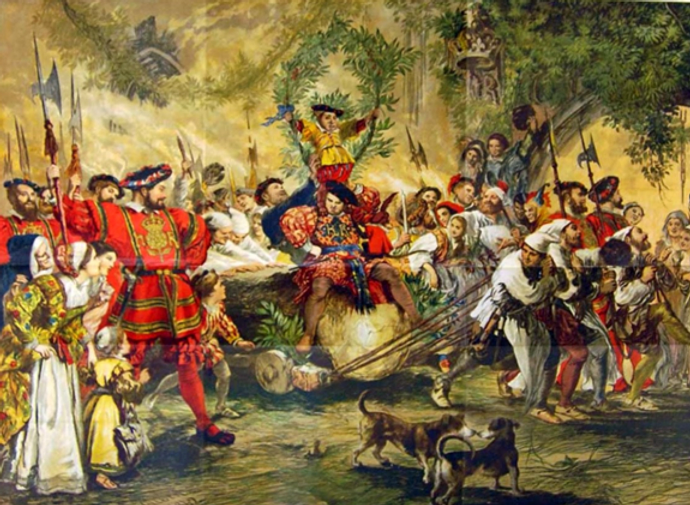Holiday traditions around the world bring to mind a sense of joy and good tidings. Each tradition carries a special meaning, many of which go back for generations. But if we were to take a look back about five hundred years ago, Christmas would seem almost unfamiliar. The holiday that now dominates most of the winter season included a great deal of solemn and strange celebrations, some of which evolved into modern-day hallmarks.
Fasting
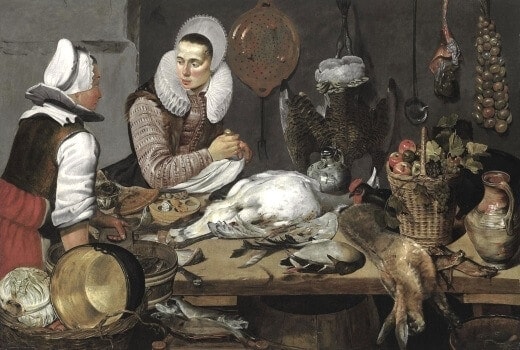
While we spend most of the holiday season enjoying treats and feasting throughout the month of December, Tudor Catholics had a far different idea of how to mark the days before Christ’s birth. The first twenty-four days leading up to Christmas were spent fasting under church mandate. No meat, no dairy, and no eggs were permitted to be consumed, cutting the average person’s diet considerably. This period of denial was meant to shift the focus from earthly concerns to the coming of the Lord. After midnight mass was held, the period of fasting was officially over and the revelry could begin. Christmas lasted twelve whole days, during which no work was permitted and people gave in to the joy of the holiday season, including the delights of food.
Boars Head
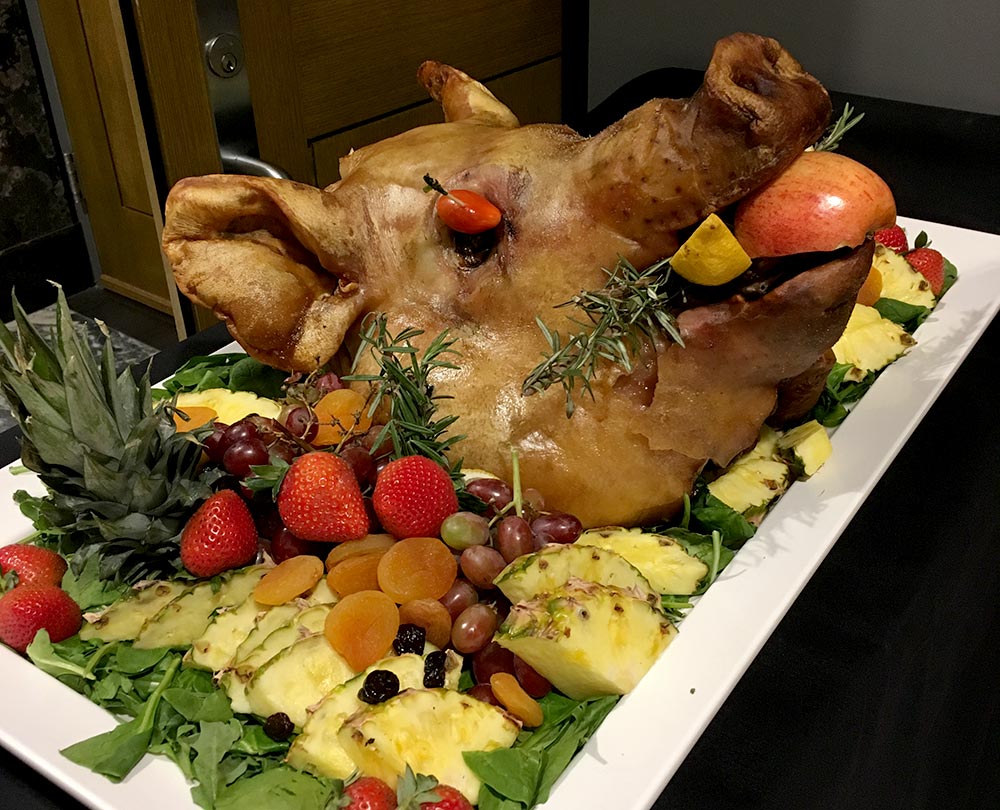
One of Henry VIII’s favorite sports was boar hunting. The heavy symbolism of the young, virile king taking on such a dangerous game filled people with the image of a masculine monarch who was prepared to defend his kingdom. Wild board was nearly extinct in England by the sixteenth century, making a boar’s head at Christmas a truly royal dish. The boar was often soaked in red wine and expensive spices before being roasted. The head was presented to be as splendid as possible, with gold leaf on the tusks and orange in its mouth. It was even presented with a song;
“Caput apri de tero
Reddens laudes Domino
The Boar’s head in hand bring I
With garlands gay and rosemary.
I pray you will sing merrily
Qui estis in convivio.”
Leftovers
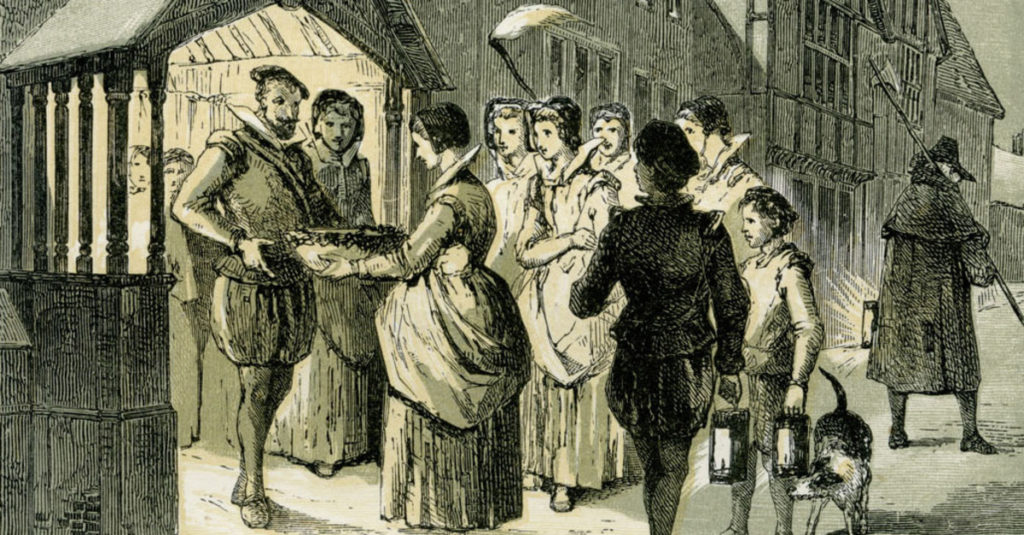
Even with the mirth of the Christmas season, it was important to remember that nearly 1/3rd of the Tudor population dwelt in poverty. During the celebration of Christmas, the poor could look forward to some small reprieve from their lot. After the feasts were finished in larger, wealthier houses, the leftovers, known as dole, were distributed among the poor. Landowners were often obligated to present their tenants with gifts, including bread, meat, and even ale. During the Feast of St Stephen, the poor were sometimes invited to dine with their landowners at the table, in exchange for contracted gifts to the landlord.
Lord of Misrule
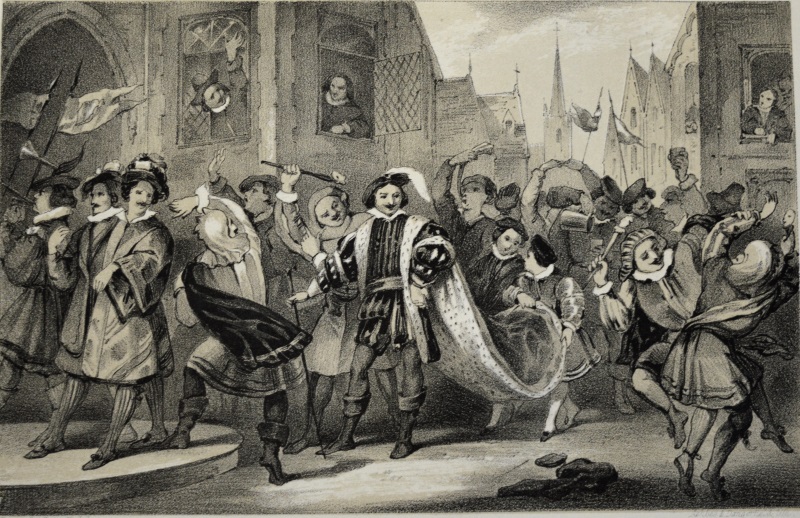
Social rules were broken down and merriment became the highest calling during the twelve days of Christmas. To oversee the rancorous celebrations, a Lord of Misrule was appointed to help enforce good cheer and make sport. This was an official position and came with a certain degree of authority. He would arrange for entertainment, including feasts and plays for everyone to enjoy. He was essentially a mock king right down to having his own court and receiving homage from them. While this position was usually given to a member of the king’s court, occasionally a servant was chosen for the season.
Mumming
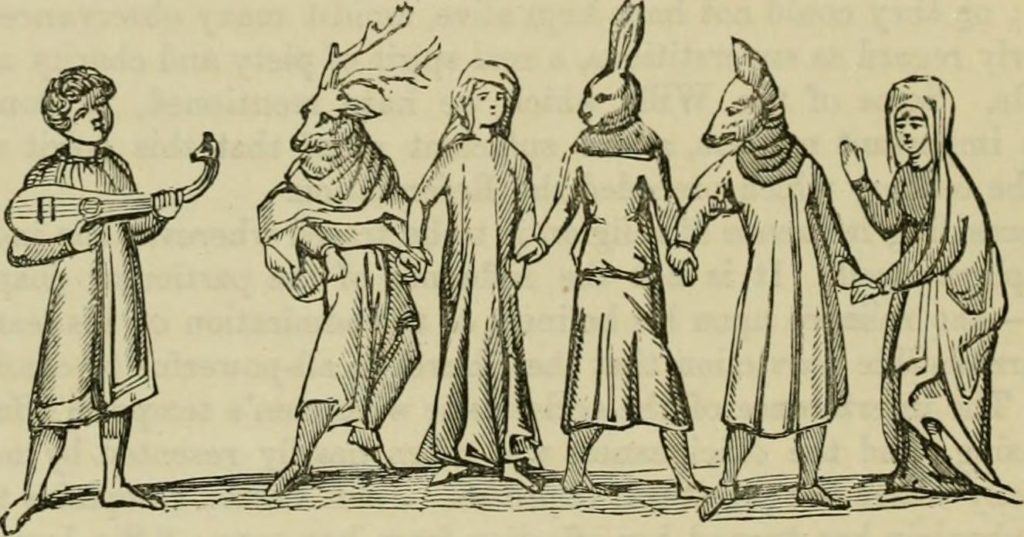
In a tradition that feels more like Halloween than Christmas, mummers could be expected to show up at the average Tudor household during the seasonal festivities. These masked party-goers would go from door to door, demanding entry and looking for music, drink, and games from the homeowner. They would make bets and play with weighted dice, enforcing the ‘charity’ in their favor. Much like the traditions of wassailing and Mari Lywd, it was all in good fun, with everyone in on the joke and happy to participate.
What Tudor holiday traditions would you like to see make a comeback? Join us at Yuletide Village for a taste of holiday joy from Nov 25th – Dec 17th, Fridays, and Saturdays for a taste of old-fashioned holiday merriment.
Resources
https://onthetudortrail.com/Blog/2017/12/03/feast-fast-in-1509/
https://www.britannica.com/art/Lord-of-Misrule-English-medieval-official
